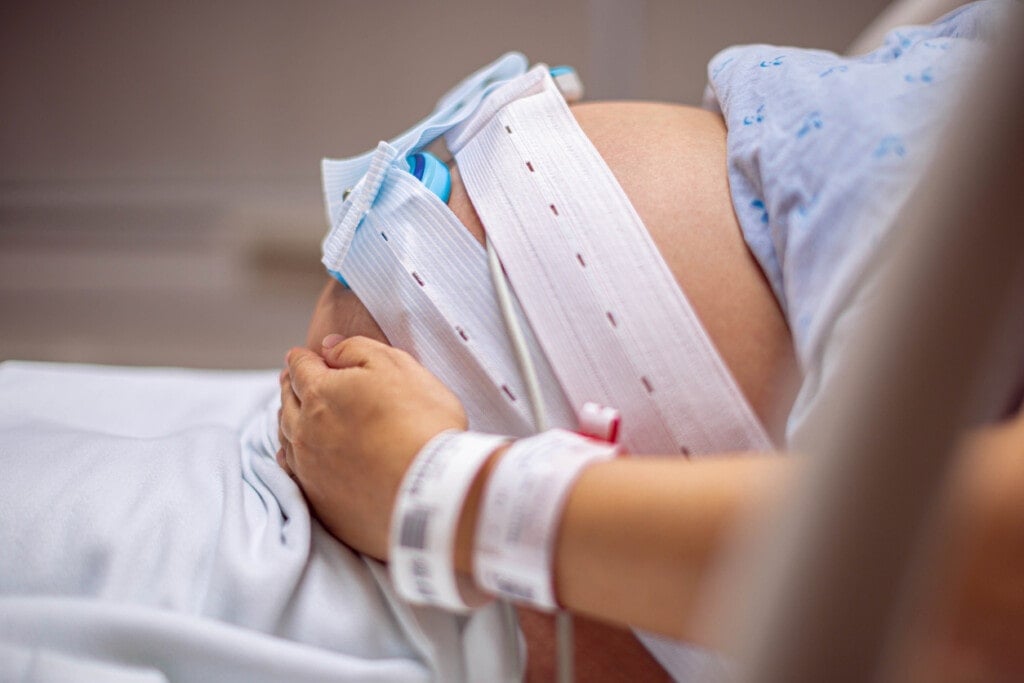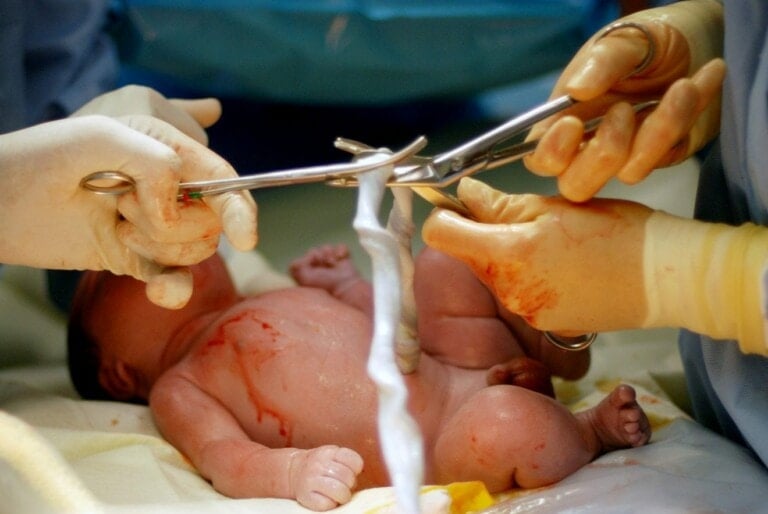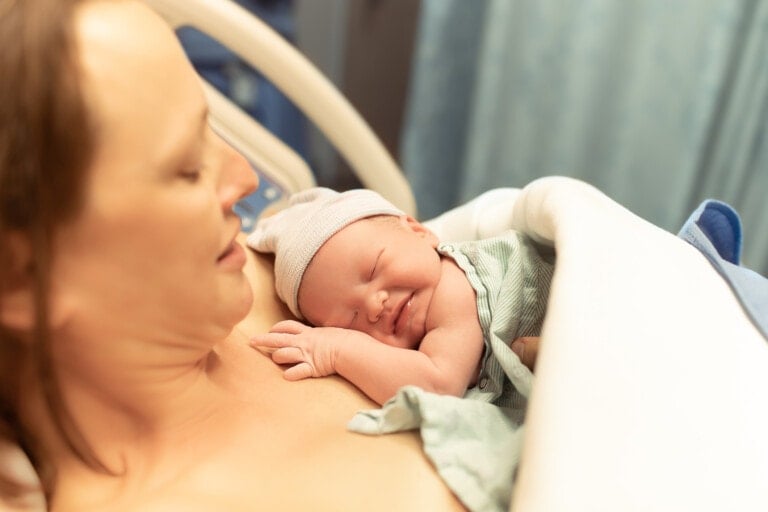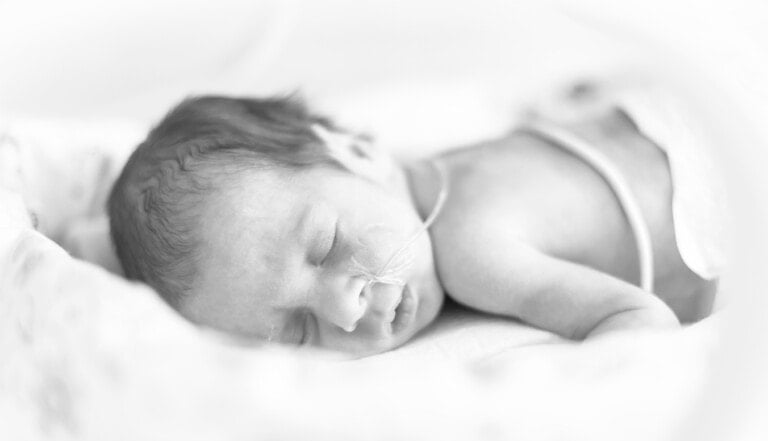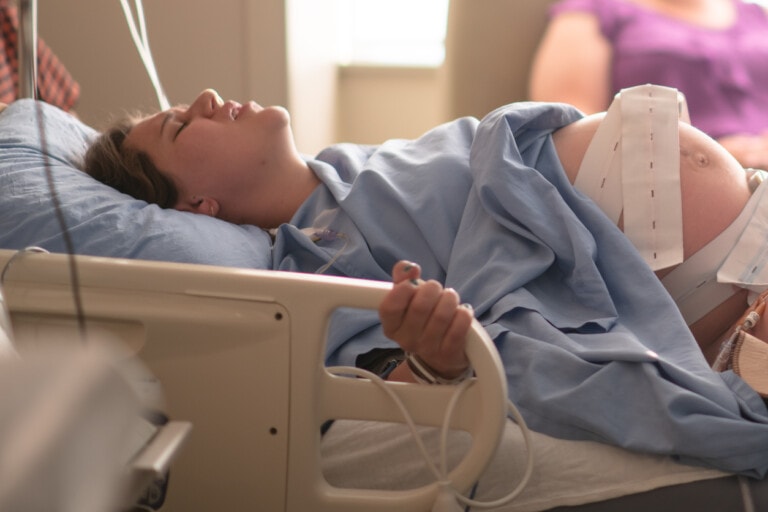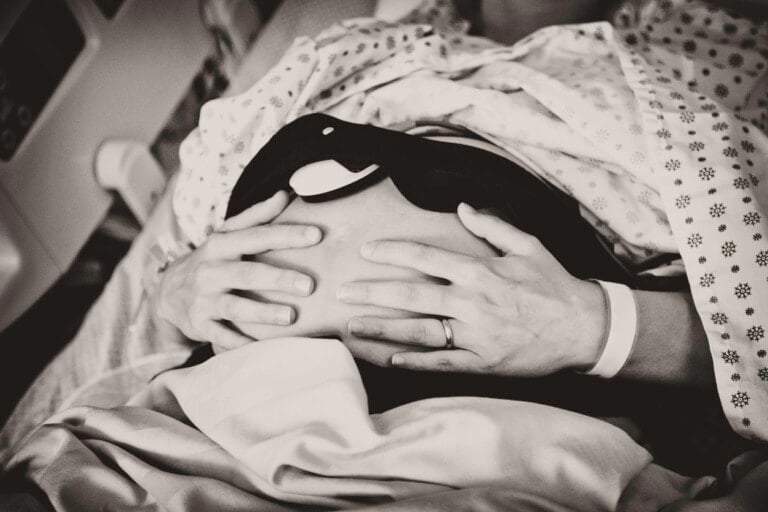Monitoring your baby’s heart rate is a routine part of labor. It often occurs before contractions start during a nonstress test. During this testing, you may hear new terminology related to your baby’s heart rate, such as early fetal heart rate decelerations, variables, and maybe even late decelerations. Sometimes it can be confusing and seem like a whole new language.
Babies often have dips in their heart rate called decelerations. But this is sometimes a good thing! Let’s look at fetal heart rate monitoring and the different terms you might hear.
What is Early Fetal Heart Rate Deceleration?
An early fetal heart rate deceleration is a decrease and return of your baby’s heart rate associated with a contraction. When you’re in labor, your medical team will monitor your baby’s heart rate to ensure their well-being. Fetal heart rates are classified as Category 1 (reassuring), Category 2, and Category 3 (ominous) to help doctors determine necessary interventions.1
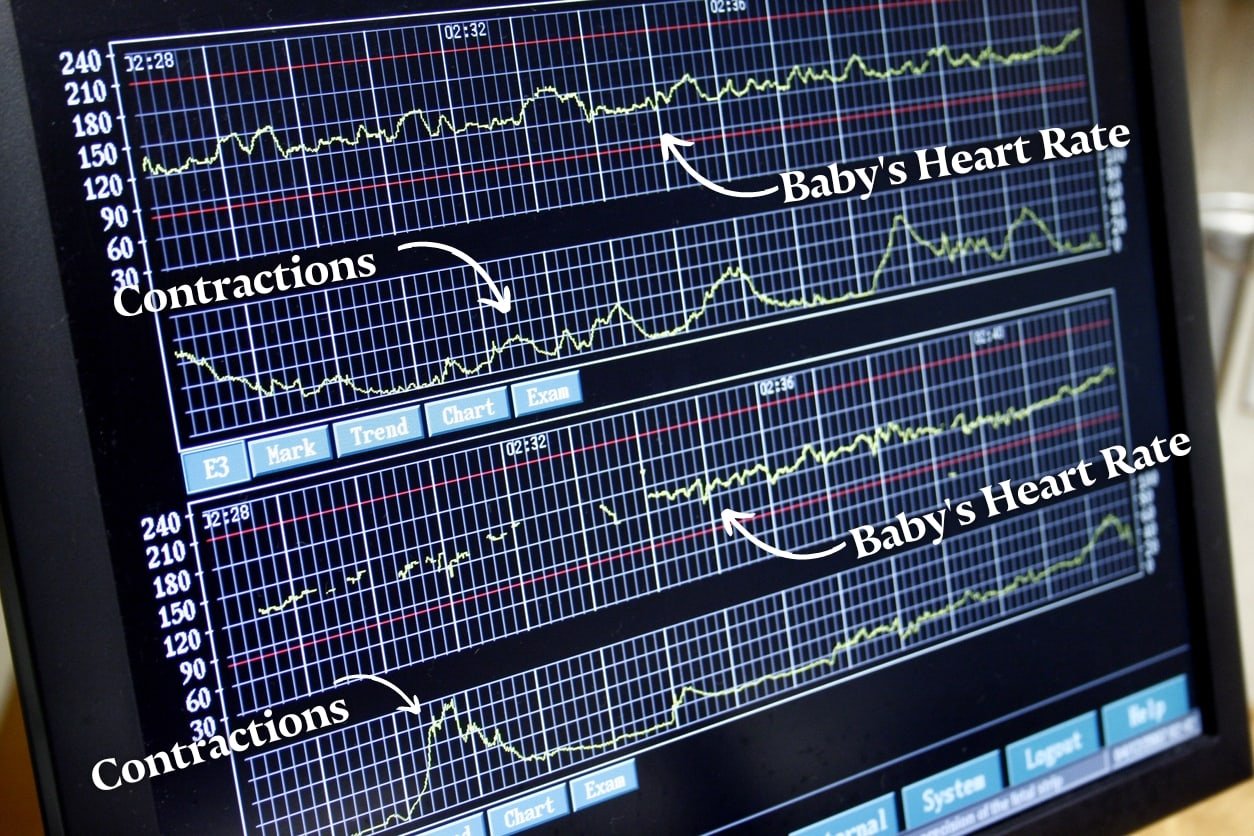
Why Will We Monitor My Baby’s Heart Rate?
Monitoring your baby’s heart rate during labor indicates how your baby is tolerating labor. The goal is to identify whether your baby must be delivered soon or immediately due to hypoxia or low oxygen levels.2
A scientist introduced electronic fetal heart rate monitoring before the 1960s, with the first clinical use in the late 1960s. While there doesn’t seem to be any benefit to your baby from fetal heart rate monitoring, it has become the standard of care in the United States. And it is a means to determine whether your baby is getting enough oxygen. Continuous fetal heart rate monitoring during labor has increased C-sections, instrumental vaginal births, and maternal infection. Still, it has not reduced the risk of fetal cerebral palsy or death.3,4,5
How Will Doctors Monitor My Baby’s Heart Rate?
There are three ways to monitor your baby’s heart rate.
External Electronic Fetal Heart Rate Monitoring
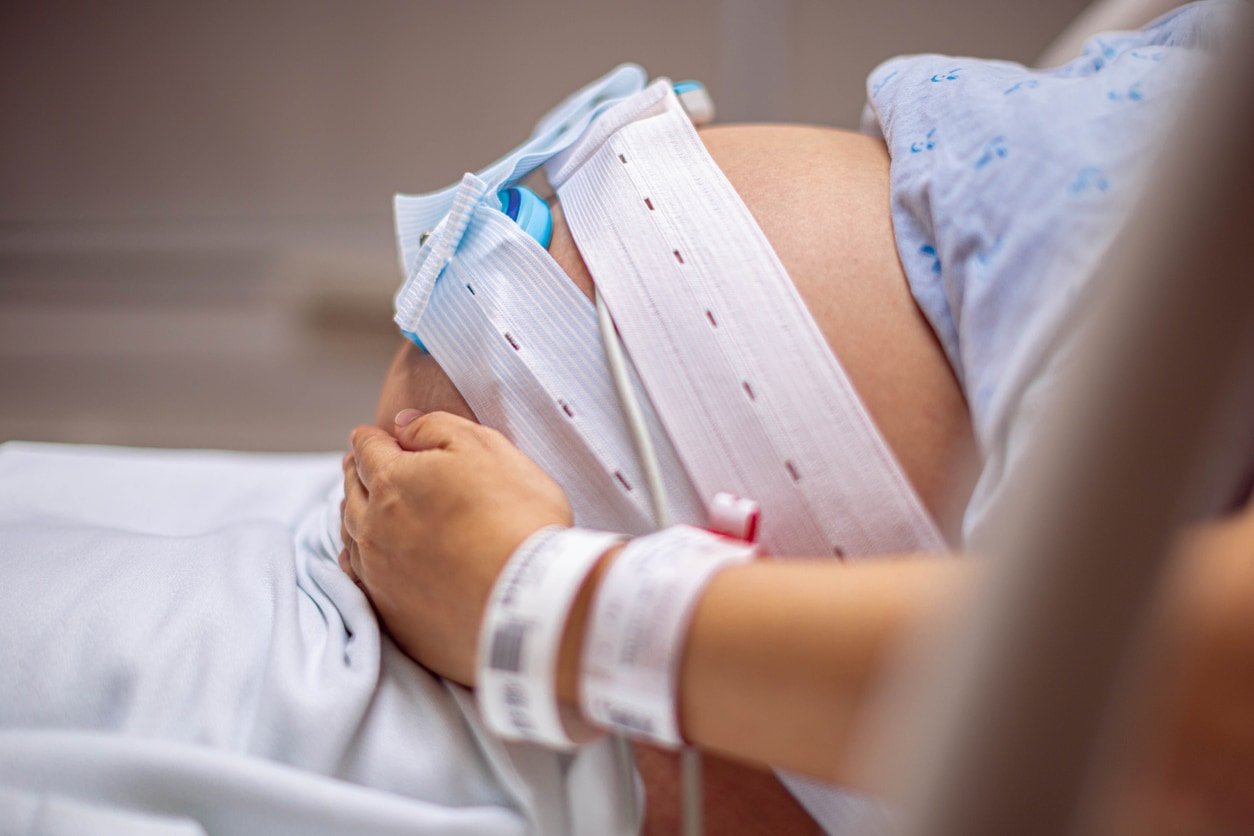
External electronic fetal heart rate monitoring is the most common form of monitoring. It involves using a small ultrasound monitor that your nurse straps to your abdomen. Your baby’s heart rate prints onto a strip of paper, and a second monitor measures your contractions and prints them on the same document.7
Internal Electronic Fetal Heart Rate Monitoring

An internal electronic monitor, or scalp electrode, is sometimes used to get a more accurate and continuous reading of your baby’s heart rate. Your doctor or midwife places the monitor under the skin of your baby’s head during a cervical exam. This device also prints the results onto a strip of paper.7
Intermittent Auscultation
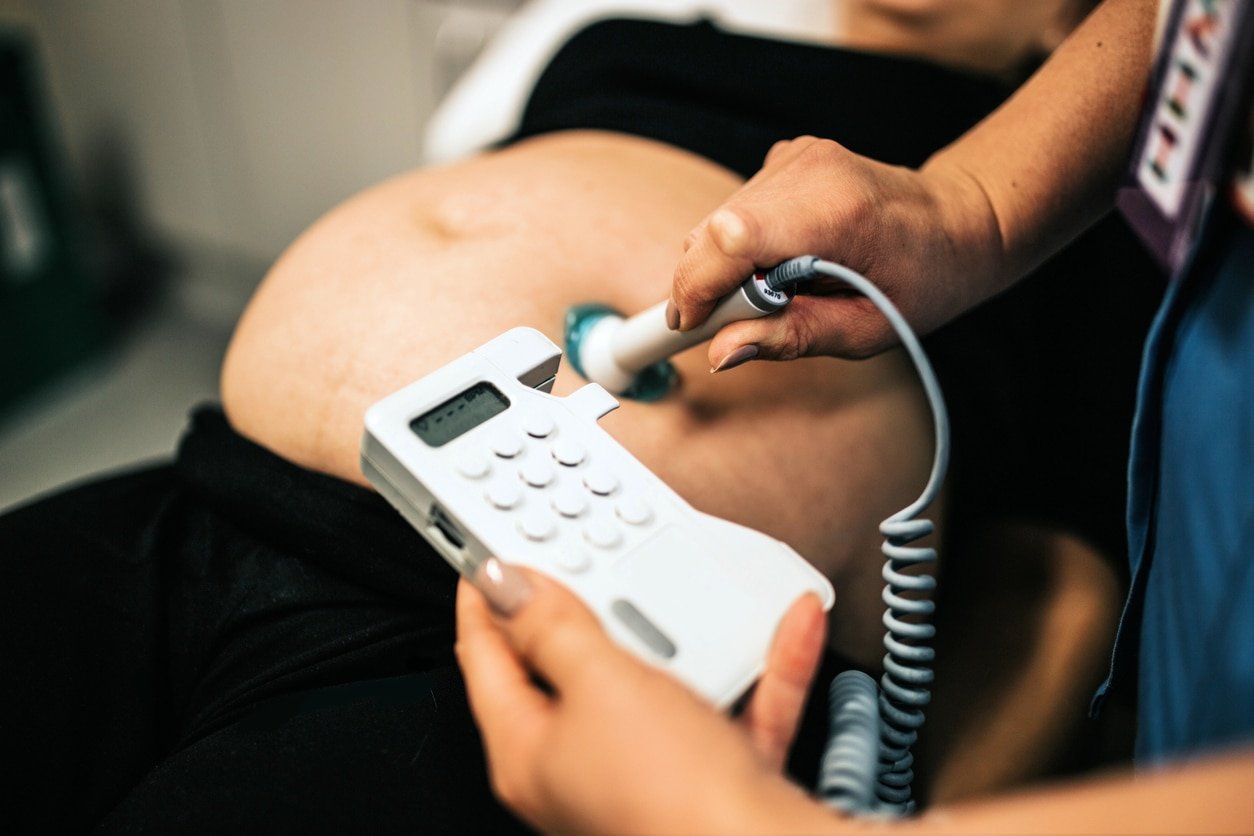
This is a way of listening to and counting your baby’s heart rate for short periods. It depends on the hospital or birth center protocols where you deliver and how often and long your baby’s heart rate will be listened to. If you have pain medication during labor, this is usually not an option. A nurse or midwife uses a handheld device to listen to your baby’s heartbeat.6,7
Types of Decelerations
Three primary decelerations, or “drops” or “dips,” can happen with a baby’s heart rate. Let’s briefly look at each one, as you may hear these terms when you are in labor.
Variable Fetal Heart Rate Decelerations
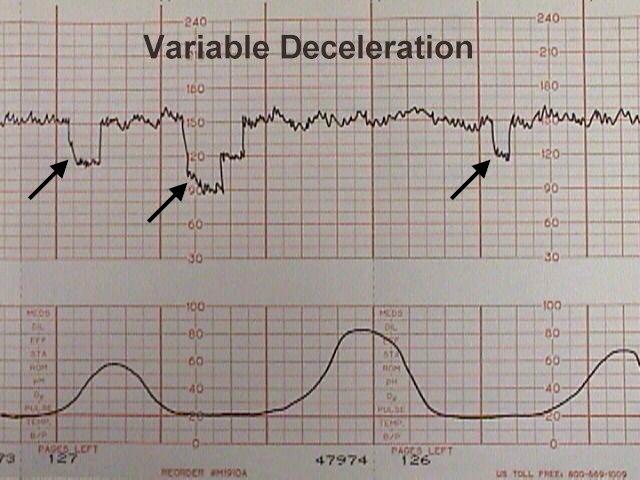
Variable decelerations are sharp decreases in the fetal heart lasting between 15 seconds and less than two minutes. These decelerations are usually caused by squeezing your baby’s umbilical cord. Your provider’s actions depend on where you are in labor and how severe the decelerations are. However, they are common, and variable decelerations do not always indicate a problem.8
Late Fetal Heart Rate Decelerations
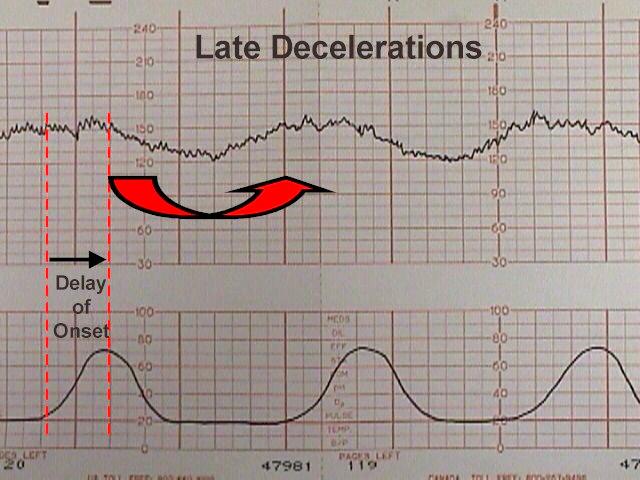
Late deceleration is a slow decrease in the fetal heart rate that starts after the beginning of a contraction. This deceleration is associated with low oxygen levels in the baby’s blood and is the most serious type of fetal heart rate deceleration.8
Early Fetal Heart Rate Decelerations
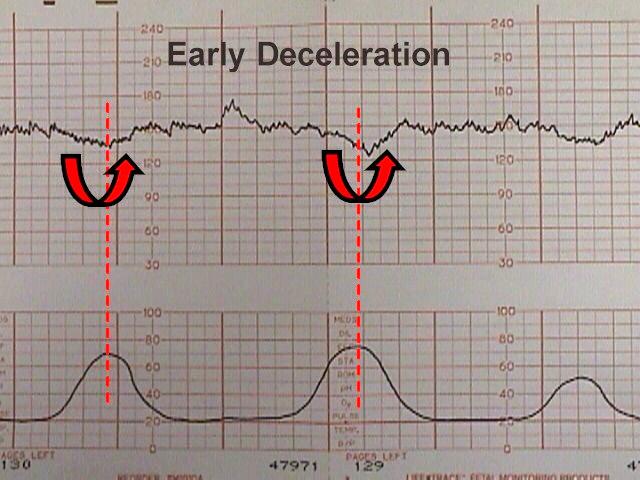
Early fetal heart rate decelerations are also slow decreases in the fetal heart rate, but they mirror the contraction. The lowest part of the heartbeat is at the peak of the contraction. Early deceleration is caused by the baby’s head being squeezed or compressed during contractions. There is no effect on your baby’s oxygenation.8
Why are Early Decelerations a Good Thing?
Early fetal heart rate decelerations happen when your baby’s head is squeezed during contractions. The vagus nerve is stimulated when the head is squeezed, and the heart rate drops. As labor progresses, your baby’s head will move lower in your pelvis, and contractions will become stronger. And these two things often lead to early decelerations. Early fetal heart rate decelerations usually mean your labor is progressing, and it will soon be time to push. And this is good news!1
Keeping you and your baby safe during labor is always a priority. One way to do that is to monitor your baby’s heart rate. Intermittent auscultation may be a good choice if you are low-risk and your baby is doing well. Fetal heart rate deceleration often occurs during labor, and variable and late decelerations can be concerning. However, early fetal heart rate decelerations usually indicate you are making labor progress. Remember to ask your nurse or provider if you have questions about your baby’s heart rate during labor.













